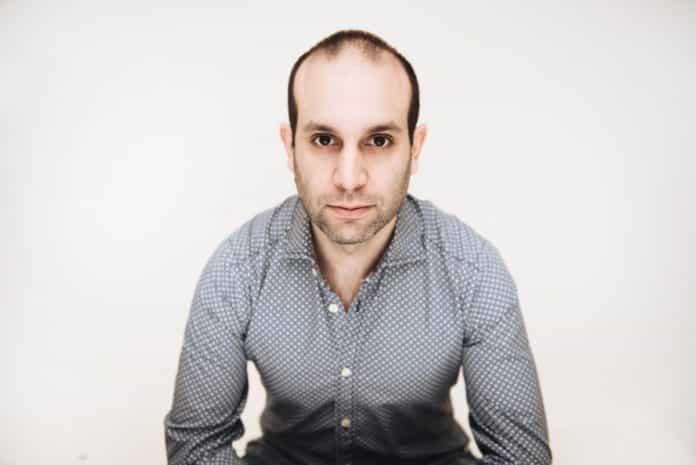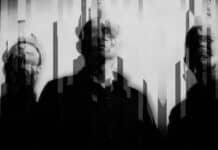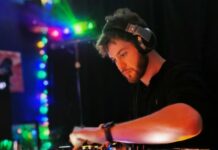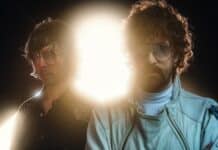
Renowned composer, Ilan Eshkeri has announced the forthcoming release on 13 May 2022 of his latest studio album ‘Space Station Earth’ on Sony Masterworks with the release of the advance single, ‘Aurora’.
To accompany the recording, Eshkeri has created an immersive multi-media concert in collaboration with the European Space Agency (ESA), which from Spring 2022 will tour the UK and Europe. ‘Space Station Earth’ is a music-led, multimedia experience that allows the audience to see through the eyes of astronauts and to contemplate our planet, the stars and the exploration of the universe. For this unique show, award-winning composer and show creator Ilan Eshkeri has combined his exceptional compositions as heard on the new album with both rare footages shot by astronauts aboard the International Space Station as well as with images from ESA locations. This rare footage will be projected across three massive screens together with a stunning light show to create an incredible audience experience. Without dialogue/narration, audiences can expect to lose themselves in the wonderful combination of emotionally charged music and extraordinary visuals and leave filled with awe and wonder.
We caught up with Ilan Eshkeri, to learn more about how “Aurora” came about, and what does the new live show concept have in store for us.
Aditya – Hey Ilan, Glad to have you for the interview. How was the last year for you?
Ilan Eshkeri – It’s been strange re-emerging after the pandemic somehow I feel older, but it’s also great to see friends again and live shows and to get back into the studio with musicians.
Aditya – ‘Aurora,’ your latest release, is indeed an immersive experience! What’s the ideation behind this track?
Ilan Eshkeri – Seeing the Aurora was one of the most awe-inspiring experiences of my life. The scale and beauty of this cosmic phenomenon are truly incredible. Scientifically it’s extraordinary to know that you are watching plasma that has burst from the sun 48hours earlier react with the atmosphere, but at the same time you feel so small as you watch it, it makes you think of your place in the universe. For me, it was a collision of science spirituality and I wanted to try and translate all of that into music – with music being both mathematical and emotional, it is the perfect medium I thunk to express this.
Aditya – What’s your creative process as a composer?
Ilan Eshkeri – I’m always looking for the moment where the random notes I’m playing are not just notes anymore…they start to mean something and they become greater than the sum of their parts. So many years of doing this and that moment is still magic to me, but some days you get luckier than others.
Aditya – Could you share some info on your upcoming album ‘Space Station Earth’
Ilan Eshkeri – I wanted to express the emotional journey that the astronauts go on. I have had the good fortune to meet several of them now and it seems that wherever they’re from or whatever they believe they have all shared a similar experience. Something about being off the planet and looking down on it creates a shift in consciousness, it’s not about science though, it’s a feeling. I suppose you could say that it’s in the soul. Yuri Gagarin the first man in space spoke about this and every one since. I realised that there is a lot of science and information about travelling to the International Space Station but nobody has ever tried to express the emotional experience that the astronauts go through, and this is what Space Station Earth is about.
Aditya – Which is the first instrument you ever picked up and why?
Ilan Eshkeri – My first instrument was the violin when I was 4 – my mother wanted me to learn it. I suppose because her father, my grandfather played the violin. Unfortunately, I never got to meet him, he died just before I was born, but I have his violin.
Aditya – Could you share info on the immersive concert you’re touring from May?
Ilan Eshkeri – Space Station Earth is electronic music, mostly we play synths, but there are also drums and guitars as well as an orchestra of strings & brass and a choir. Set behind the band is a huge ultra-wide projection showing images shot mostly by astronauts aboard the International Space Station. The other images were shot by myself and my crew at various European Space Agency locations. They gave me unprecedented access, and we were fortunate to film two rocket launches. I got to take part in a zero-gravity flight! This project has brought me some of the best experiences of my life both in and outside of music.
Aditya – What’s your studio setup up like?
Ilan Eshkeri – I have just built a new studio in my garden and I couldn’t be happier. It is like an old fashioned study but with synths guitars, violins and all sorts of other instruments lying about. It’s a creative sanctuary for me.
Aditya – You’ve multiple Oscar and BAFTA-winning works, how do you feel about that?
Ilan Eshkeri – It’s always very humbling for your work to be recognised by your peers, I’m very grateful for all the nominations and awards I’ve had in my career.
Aditya – I believe you love the earth and beyond! Do you think humans will be able to establish a civilisation outside the Earth?
Ilan Eshkeri – Yes I believe that there is no end to the possibilities that humanity can create, we are a very curious and extraordinarily inventive species. However, I also believe that we are a very long way from having the technology to be able to live on another planet or travel any significant distance among the stars. I suppose it is just a matter of time, but we really also need Tobe very focused on looking after the planet we are currently living on.
Aditya – Lastly, which is your favourite star/planet and why? (Except Earth)
Ilan Eshkeri – Jupiter and its 4 moons. Jupiter and its never-ending eye storm are fascinating and the 4 moons are some of the most likely places where we might find life, warm surfaces, geological events, subterranean oceans, and even traces of oxygen. There are some satellite studies of Jupiter’s moons happening in the next 10 years, so we will find out a lot more in the near future.









